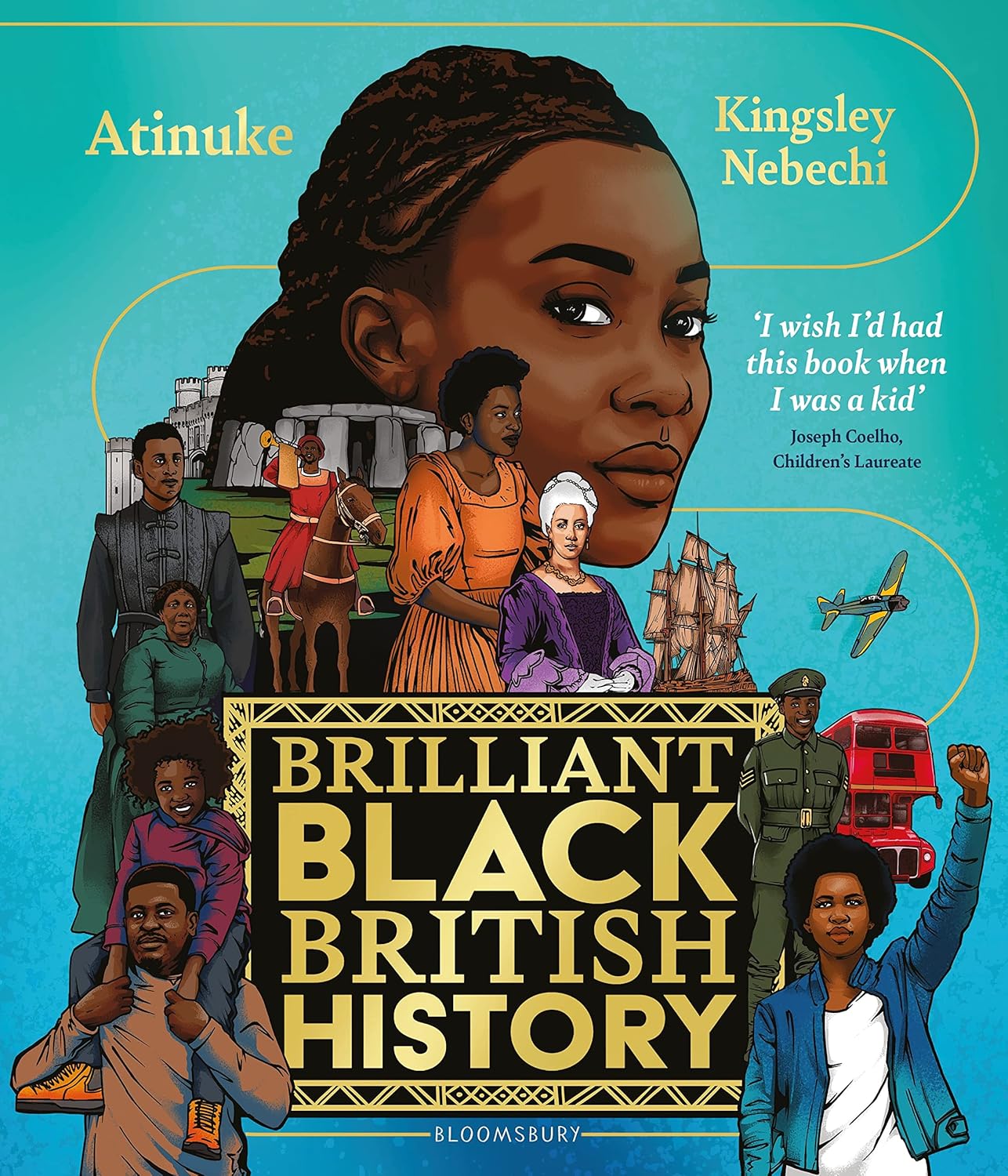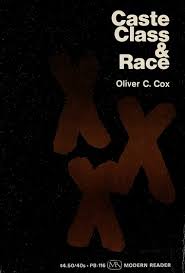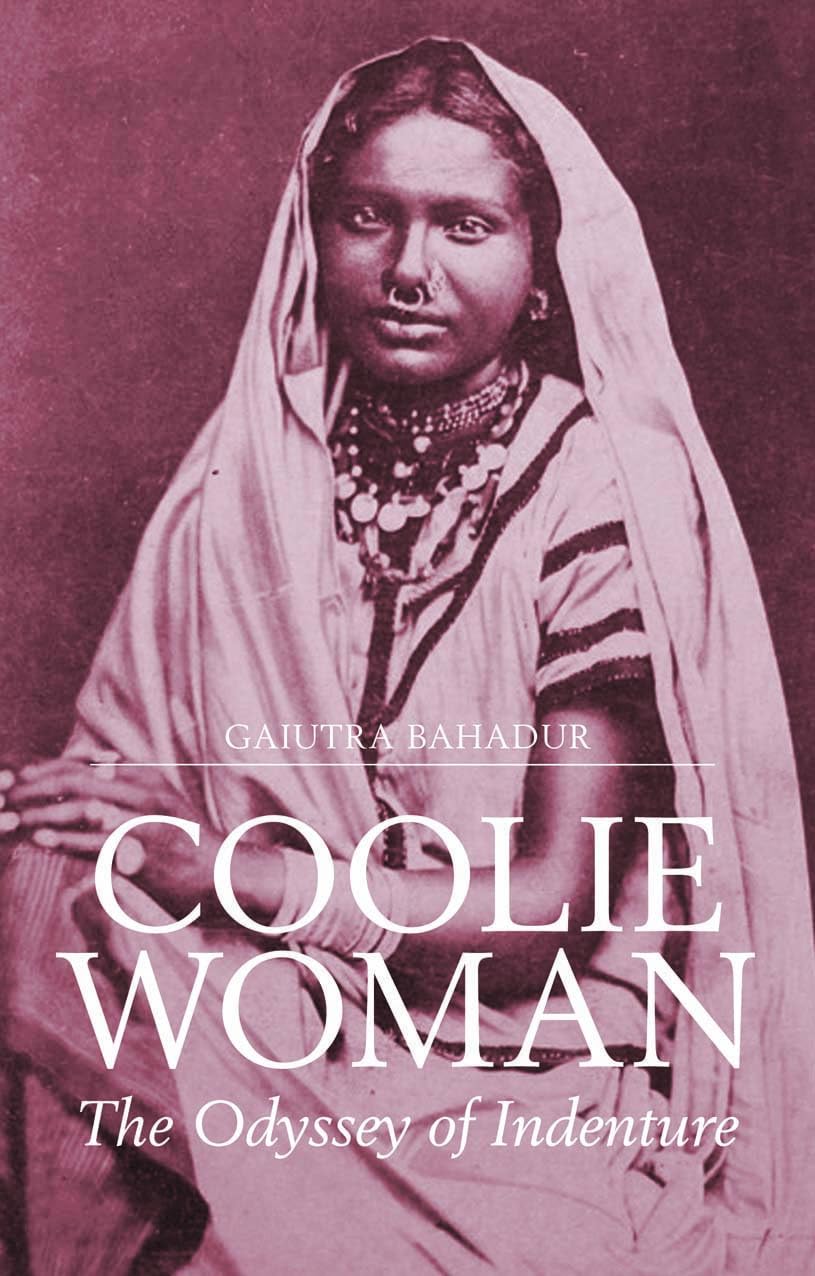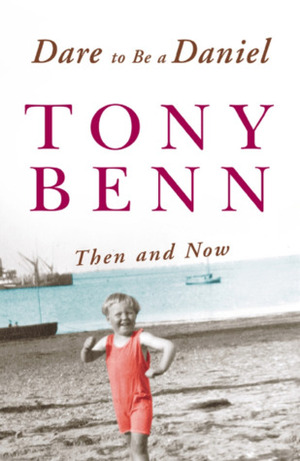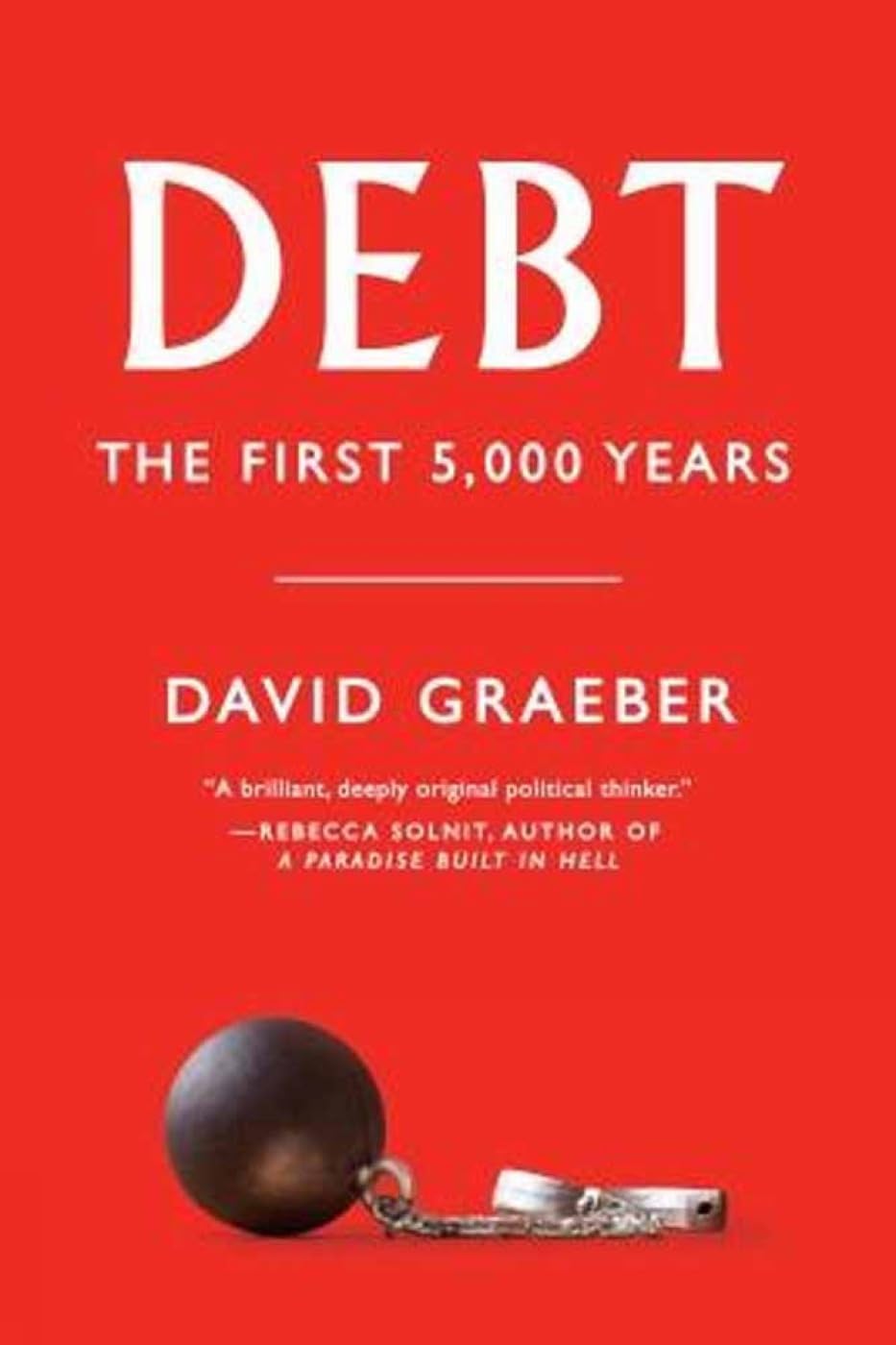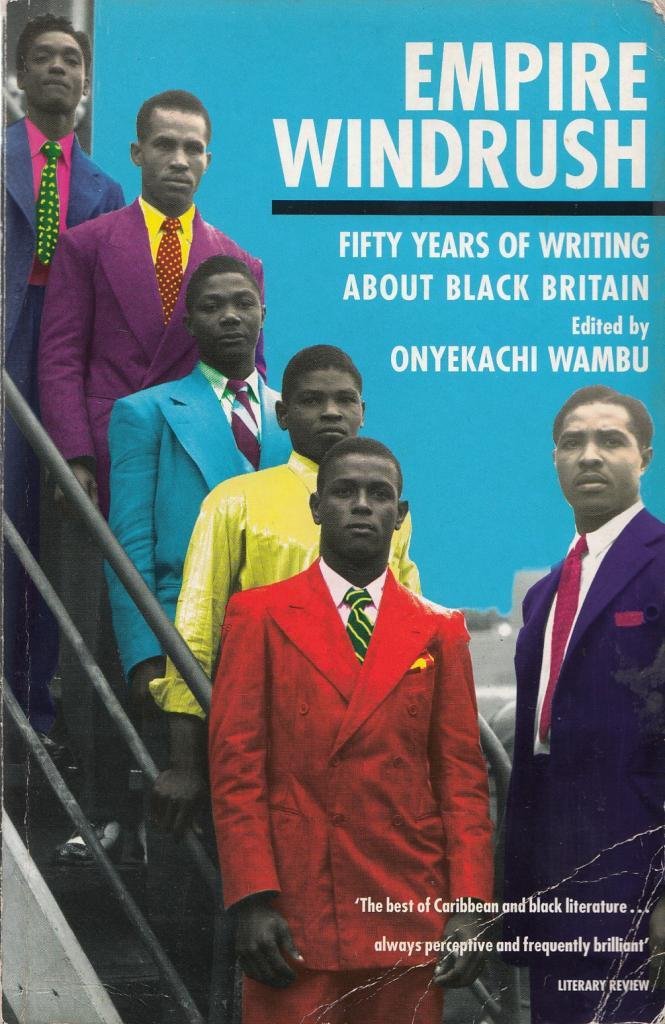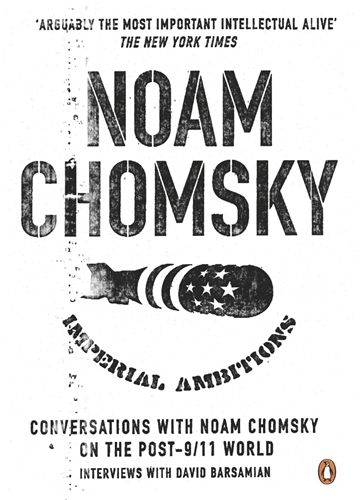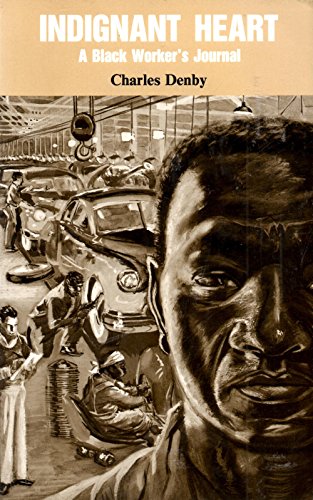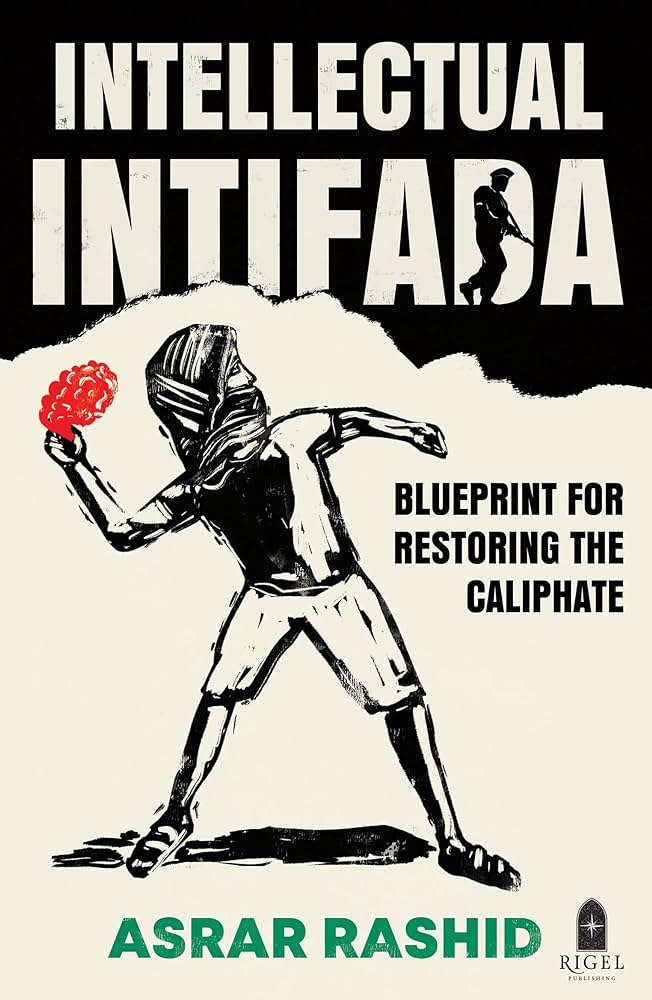An eye-opening story of Britain, focusing on a part of our past that has mostly been left out of the history books: the brilliant Black history of England, Scotland, Wales and Ireland.
Did you know that the first Britons were Black? Or that some of the Roman soldiers who invaded and ruled Britain were Black, too? Join this fascinating journey through the ages to meet those first Britons, as well as the Black Tudors, Georgians and Victorians who existed in every walk of life here. The incredible journey through time is brought to life through Atinuke's fascinating storytelling and illustrated scenes, detailed maps, and timelines created by illustrator Kingsley Nebechi.
From science and sport to literature and law, celebrate the brilliant Black people who have helped build Britain. Learn about key and complex historical topics such as the world wars, slavery, the industrial revolution, Windrush and the Black Lives Matter movement. This fascinating book will change everything you thought you knew about our green-grey British isles.
A 1948 sociological analysis of the issues of caste, class, and race relations in the United States and the world
*** Shortlisted for the Orwell Prize*** In 1903 a Brahmin woman sailed from India to Guyana as a 'coolie', the name the British gave to the million indentured labourers they recruited for sugar plantations worldwide after slavery ended. The woman, who claimed no husband, was pregnant and travelling alone. A century later, her great-granddaughter embarks on a journey into the past, hoping to solve a mystery: what made her leave her country? And had she also left behind a man? Gaiutra Bahadur, an American journalist, pursues traces of her great-grandmother over three continents. She also excavates the repressed history of some quarter of a million female coolies. Disparaged as fallen, many were runaways, widows or outcasts, and many migrated alone. Coolie Woman chronicles their epic passage from Calcutta to the Caribbean, from departures akin either to kidnap or escape, through sea voyages rife with sexploitation, to new worlds where women were in short supply. When they exercised the power this gave them, some fell victim to the machete, in brutal attacks, often fatal, by men whom they spurned. Sex with overseers both empowered and imperiled other women, in equal measure.It also precipitated uprisings, as a struggle between Indian men and their women intersected with one between coolies and their overlords.
Born into a family with a strong, radical dissenting tradition in which enterprise and public service were combined, Tony Benn was taught to believe that the greatest sin in life was to waste time and money. Life in his Victorian-Edwardian family home in Westminster was characterised by austerity, the last vestiges of domestic service, the profound influence of his mother, a dedicated Christian and feminist, and his colourful and courageous father, elected as a Liberal MP in 1906 and later serving in Labour Cabinets under Ramsay MacDonald and Clem Atlee. Benn followed in his father's footsteps, becoming one of the most famous and respected figures in modern British politics.
Dare to be a Daniel feelingly recalls Tony Benn's years as one of three brothers experiencing life in the nursery, the agonies of adolescence and of school, where boys were taught to 'keep their minds clean' and the shadow of fascism and the Second World War with its disruption and family loss. This moving memoir also describes his emergence from World War Two as a keen socialist about to embark upon marriage and an unknown political future. The book ends with some of Tony Benn's reflections on many of the most important and controversial issues of our time.
Every economics textbook says the same thing: Money was invented to replace onerous and complicated barter systems—to relieve ancient people from having to haul their goods to market. The problem with this version of history? There’s not a shred of evidence to support it.
Here anthropologist David Graeber presents a stunning reversal of conventional wisdom. He shows that for more than 5,000 years, since the beginnings of the first agrarian empires, humans have used elaborate credit systems to buy and sell goods—that is, long before the invention of coins or cash. It is in this era, Graeber argues, that we also first encounter a society divided into debtors and creditors.
Graeber shows that arguments about debt and debt forgiveness have been at the center of political debates from Italy to China, as well as sparking innumerable insurrections. He also brilliantly demonstrates that the language of the ancient works of law and religion (words like “guilt,” “sin,” and “redemption”) derive in large part from ancient debates about debt, and shape even our most basic ideas of right and wrong. We are still fighting these battles today without knowing it.
In 1948, the SS Empire Windrush, carrying hundreds of young men and women from the Caribbean, docked in Southampton. The ship's arrival signalled the beginning of a mass migration which was to have profound effects on Britain for the next 50 years. This anthology charts those 50 years. In poetry, fiction, journalism and essays, and addressing themes such as identity, racism, education, sexual identity, entertainment and leisure and black on white, 'Empire Windrush' is a groundbreaking book of enormous historical and contemrporary relevance.
In this important collection of interviews with the acclaimed radio journalist David Barsamian, Noam Chomsky discusses U.S. foreign policy in the post-9/11 world.
Barsamian has a unique rapport with Chomsky - having conducted more interviews and radio broadcasts with him than any other journalist - and here explores topics Chomsky has never before discussed: the 2004 presidential campaign and election; the future of Social Security; the increasing threat of global warming; and new dangers presented by the United States' ever-deepening entanglement in Iraq.
The result is an illuminating dialogue with one of the world's leading thinkers - and a startling picture of the turbulent world in which we live.
Charles Denby’s autobiography is a testament to the struggle for freedom. In the first part of his story, Denby recounts the hardships he endured growing up as a Black in the rural South. He escapes to the North only to discover a more sophisticated form of racism and bondage. The second part of his story, written 25 years after the first, chronicles his experiences in the mid-1950s as the Civil Rights Movement was about to explode. We hear his stories as an active participant in all the mass struggles of the next two decades-from the 1956 Montgomery Bus Boycott to the 1967 uprising in Detroit and the Black Caucuses in the unions that followed. It is from his participation in these human rights struggles that Denby’s prose gains its force. This new edition contains an introduction by the prominent Black labor historian William Harris and an appendix by the revolutionary philosopher Raya Dunayevskaya.
‘Intellectual Intifada’ traces the steps of the Prophetic model for the establishment of just governance—stepping round the misconceptions and misrepresentations of Islam, laying bare the collective responsibility of each believer to bring the Caliphate into being. Far from becoming an autocratic tyranny, Rashid shows that a concerted attempt—under the guidance of ijtihād and the ahl al-ḥall wa al-ʿaqd—to eliminate the unjust taxes, the punishment by inflation through usurious banking mechanisms, and the wastefulness of warmongering military budgets, may produce something close to the perfect example of society as established in Madinah. The intelligent way to change the disastrous state of affairs, or affairs of the state—Rashid never shies from calling a spade a spade—is to change oneself. To shake off the shackles of the monocultural consumer slavery that binds us requires—not in violent reaction—but an acute grasp of how things are.
The book explores the Luddite movement, which was a group of displaced textile workers in Yorkshire who protested the loss of their livelihoods and the new machinery of the Industrial Revolution through organized violence, such as destroying frames. The title is taken from a poem by A.E. Housman and reflects the Luddites' sense of loss and anger in the face of overwhelming social and economic change.

